Vinson Massif: Your Top Five Questions Answered
It’s time to meet the last frontier—Antarctica’s Vinson Massif. With no permanent residents, this ice-covered continent was once virtually inaccessible. But thanks to a blue ice runway and a number of seasonal research, mountaineering, and adventure camps, climbing Vinson Massif is now within reach for anyone ready for a truly wild adventure and a once-in-a-lifetime experience.
Nestled deep in the heart of the mighty Ellsworth Mountains, where 24 hours of sunlight, harsh winds, and blistering cold dominate the polar desert landscape, Vinson Massif has been luring climbers and adventure seekers for decades. To enable safe and successful climbs in the heart of Antarctica, Climbing the Seven Summits outfits our teams with the best logistics and the most capable, qualified, and seasoned guides in the world. To learn more about our upcoming expeditions, head to our website.
To help potential climbers better understand what it means to tackle Vinson Massif, we asked Mike Hamill, owner of CTSS and author of Climbing the Seven Summits, and the talented team at CTSS to answer a few of the most common questions we field about Vinson Massif.
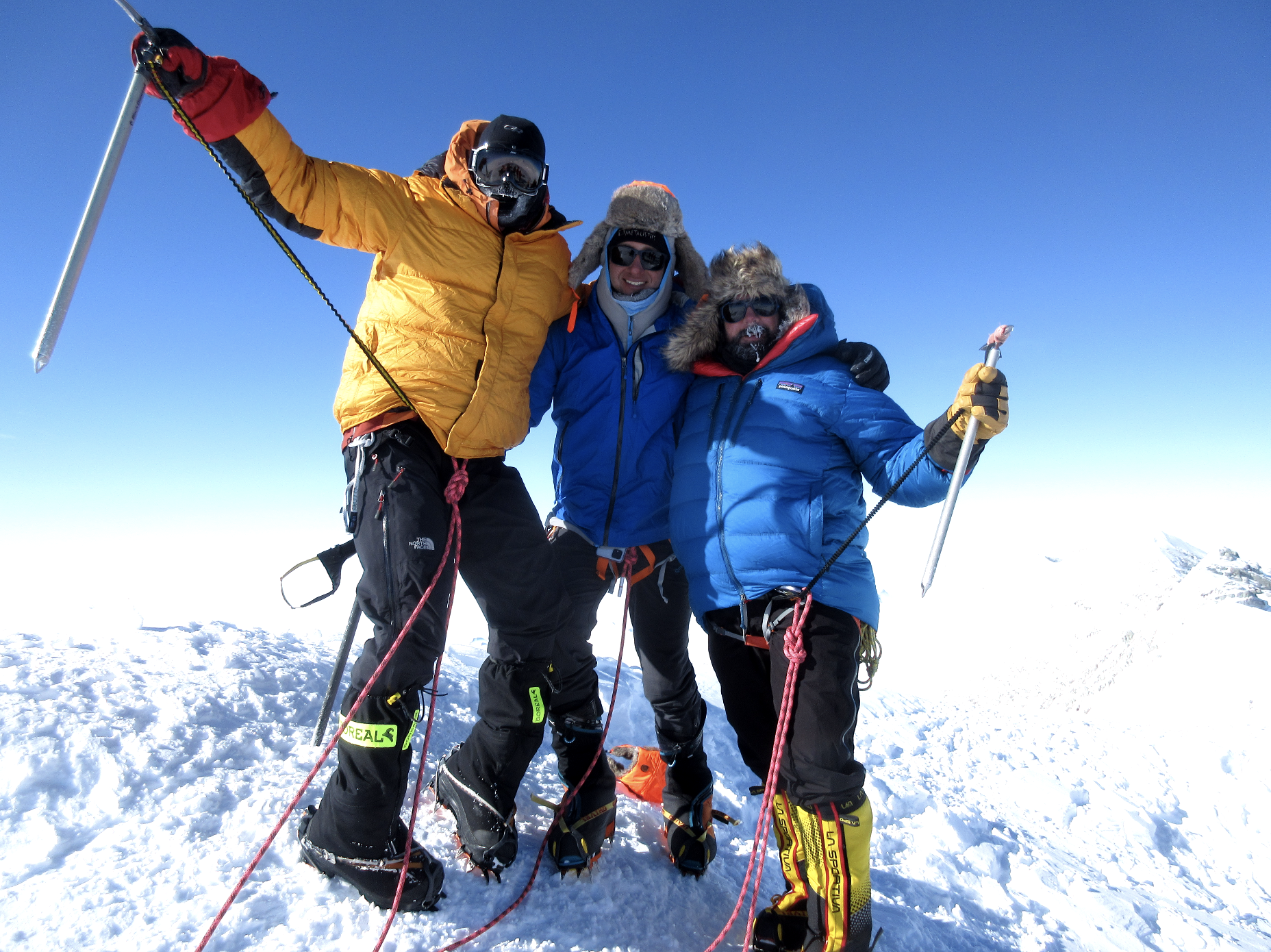
What should I expect when flying from Punta Arenas, Chile, to Antarctica?
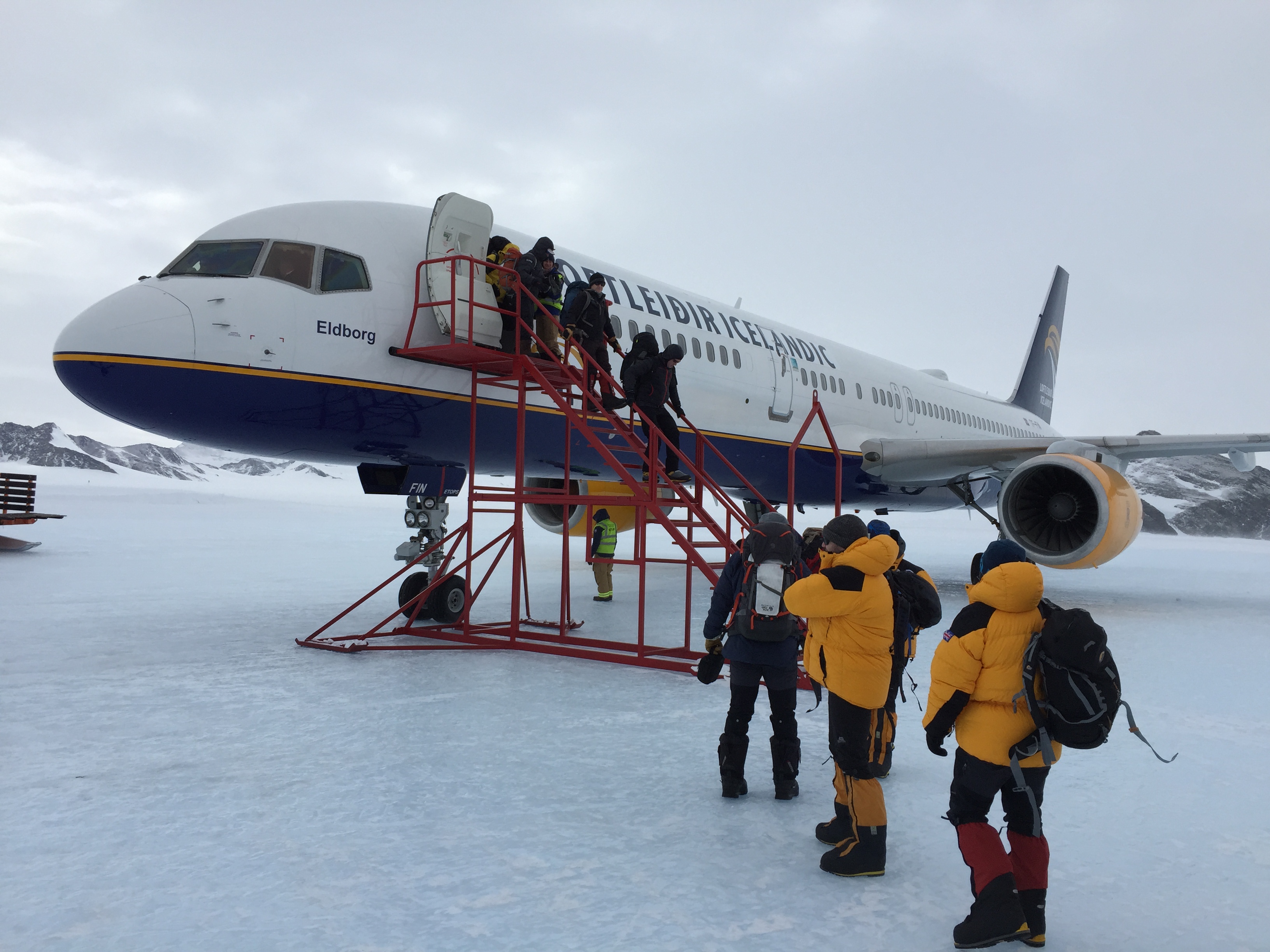
To reach Vinson Base Camp, you will take two flights and need a healthy dose of patience and flexibility as flight departure times are not up to us, but up to the weather which needs to be perfect in order to land on the ice.
Your first flight departs from Punta Arenas, Chile, where the team completes a gear check and attends a required orientation for activities in Antarctica. Once checked through the preflight process, you pack your bags and stay ready to go at the drop of a hat. As soon as we get word that the weather is clear and the flight is running, we board our flight, sometimes within the hour, wearing our Antarctic cold-weather gear.
Flying over Antarctica and landing on the blue ice runway at Union Glacier Camp is an adventure in its own right. But once you step off the plane, your adventure continues in an other-worldly landscape—one of ice, snow, endless sun, and very few people. After your team arrives at Union Glacier Camp, the whole flight process starts again. You pack your bags, stay ready to go at the drop of a hat, and once we get word, it’s off to Vinson Base Camp via a Twin Otter plane.
How do the weather and climate impact this expedition?
Weather and climate play a significant role not only in our flight schedule to and from Antarctica but also in the climbing on Vinson Massif.
Here are three major considerations and guide tips to help manage:
Extreme cold. You should expect and be prepared for very cold temperatures down to -40°F (-40°C) and the possibility of fierce Antarctic storms. This means it is paramount to have the appropriate clothing and gear. We provide all climbers with a detailed Gear List that includes recommended products tried and tested by our own team.
Guide Tip: Be very diligent about looking after yourself. Dress appropriately, leave no exposed skin, make sure to manage your layering to not overheat or sweat too much, have your systems dialed and organized, and maintain excellent communication with your guide.
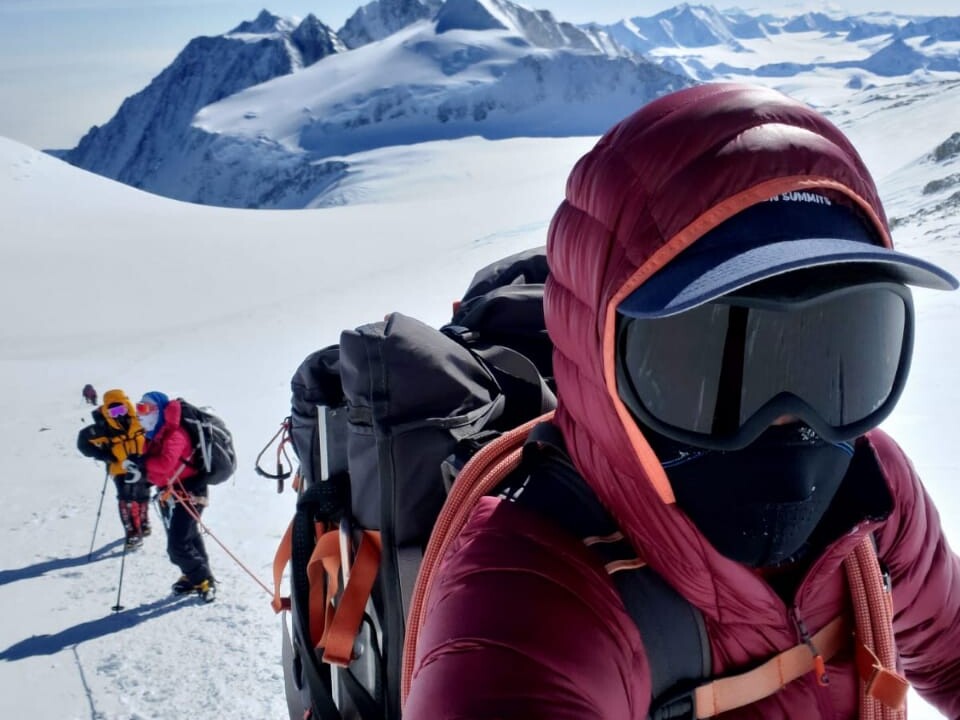
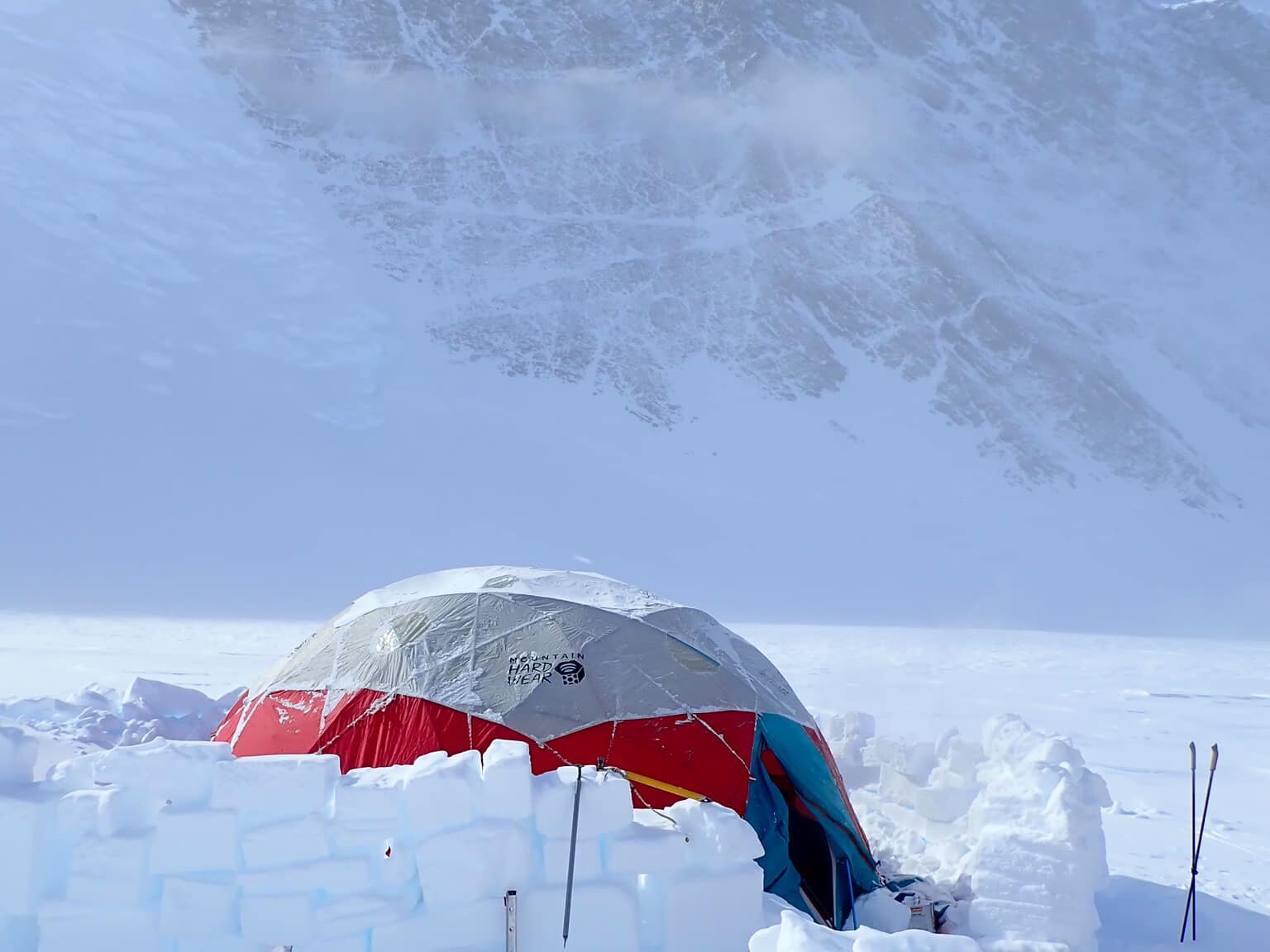
Low barometric pressure. Due to the low barometric pressure at this latitude, you can expect to feel the effects of altitude more than you would on other climbs or expeditions you have done. The equivalent air altitude alone is not a good predictor of how you might feel. Vinson feels higher than it is!
Guide Tip: We employ a conservative schedule to give your body more time to acclimatize and account for this decreased oxygen availability that, when matched with the severe cold and wind, can exacerbate altitude sickness.
24-hour daylight. We will enjoy 24-hour sunlight while in Antarctica, with the sun merely dipping toward the horizon and circling the sky. Direct sunlight and warmth will dictate all of our movement and activities while in Antarctica. Our climbing and summit bid will be timed to give us the best climbing conditions. Rest assured, you will get plenty of time to eat and sleep, and your body will quickly adjust to the unique timetable we create together to suit our goals.
Guide Tip: While we will have a daily itinerary and goal, it is best to suspend the notion of when things “should” happen. For instance, at some camps, you will have to wait until the sun hits your tent and it warms up a bit before it is safe to depart, which might mean getting up at 11am and departing around noon. This also impacts when and how we rest and eat our meals. Understanding and embracing the fluidity will, in turn, make your experience more enjoyable.
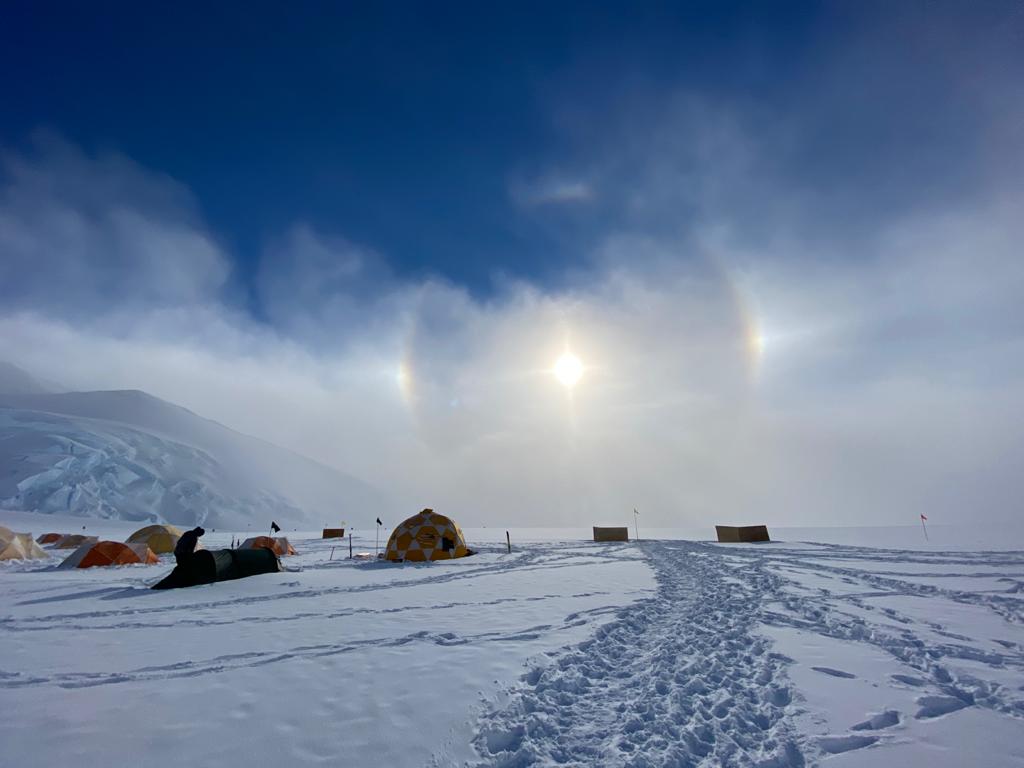
What is the setup like at CTSS’s Vinson Base Camp?
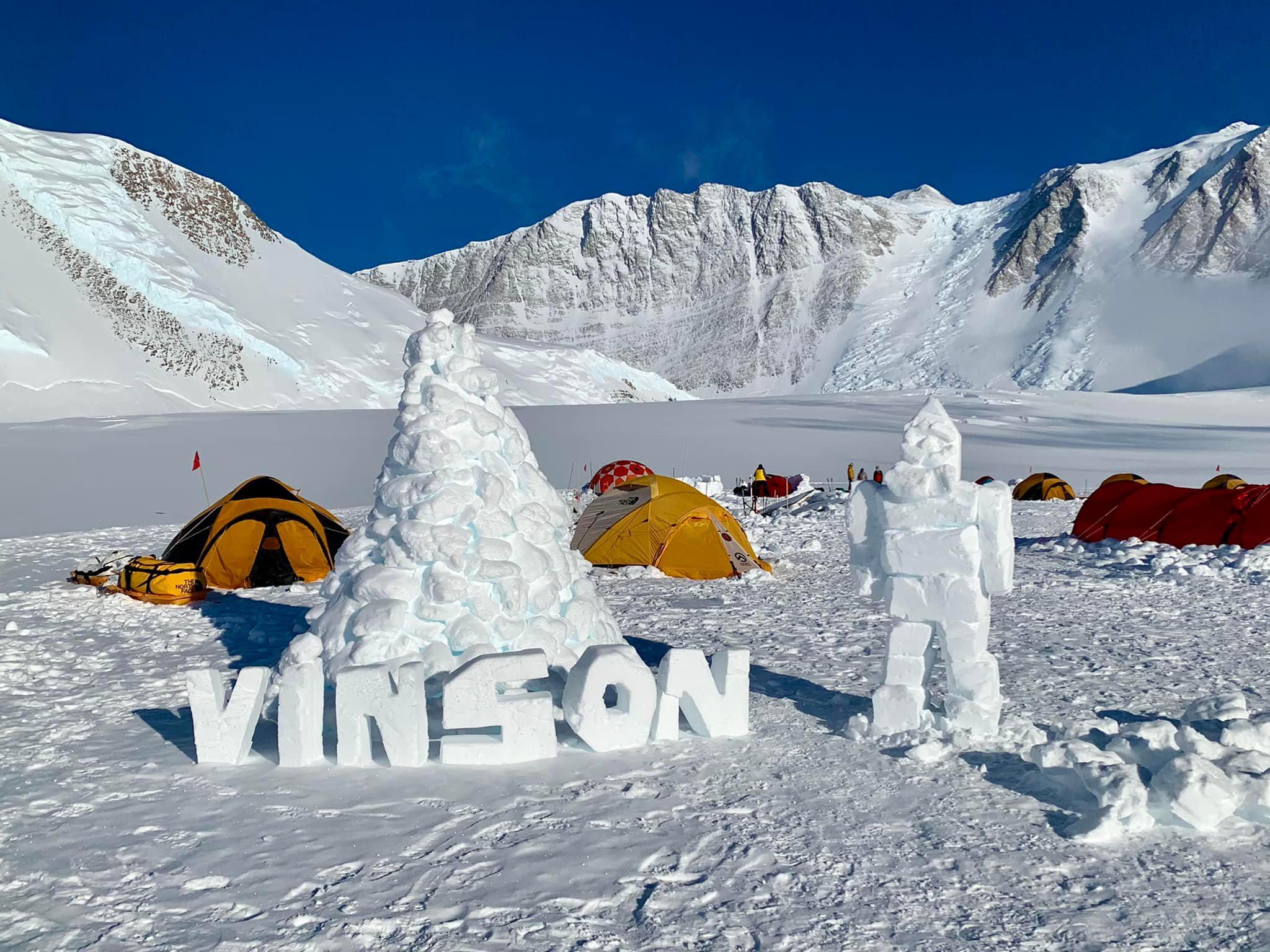
CTSS’s Vinson Base Camp is situated at 6,900 feet (2,100 meters) on the Branscomb Glacier. Upon arrival, you are likely to only spend two nights at Vinson Base Camp before heading to Low Camp. Once your team moves to Low Camp, you won’t see Vinson Base Camp again until after your summit bid. Usually, it takes only a day to descend from the summit back to Vinson Base Camp, where you’ll celebrate with a hearty meal and a toast to your team!
Our setup at Vinson Base Camp is one of the best on the mountain. We’ve invested a lot of resources and time to ensure all of our climbers are as comfortable as possible in such an extreme environment. We are proud to offer climbers dome tents with a floor and enough clearance to stand up in—a relative luxury compared to other setups. We also have a dining tent with chairs, and we bring the best quality food we can get our hands on. Why do we care so much about climber comfort? We are firm believers in the Marginal Gains Philosophy, which means we capitalize on every little hidden advantage, 1% here, 1% there, which results in compounding gains and a huge overall improvement for our climbers.
What specialized cold-weather gear do I need for this climb?
Wind, cold, and extreme conditions all factor into the specialized cold-weather gear that you will need to climb Vinson Massif. Much like Carstensz Pyramid, you won’t be able to purchase or replace any gear, which means your kit needs to be checked and double-checked before your expedition. Here are a few key pieces of cold-weather gear that are a must-have to ensure your expedition to Antarctica’s tallest peak is a success.
Lightweight Sled Duffel. Thanks to abundant, reliable snow on Vinson Massif, we use sleds to disperse the weight of our loads between Vinson Base Camp and Low Camp. This also means you can’t skimp on your training. Our go-to is dragging a large car tire connected to your harness while wearing a weighted pack to mimic the same motion. Be sure your duffel is waterproof and lightweight. We recommend the Hyperlite Mountain Gear 140L Expedition Duffel.
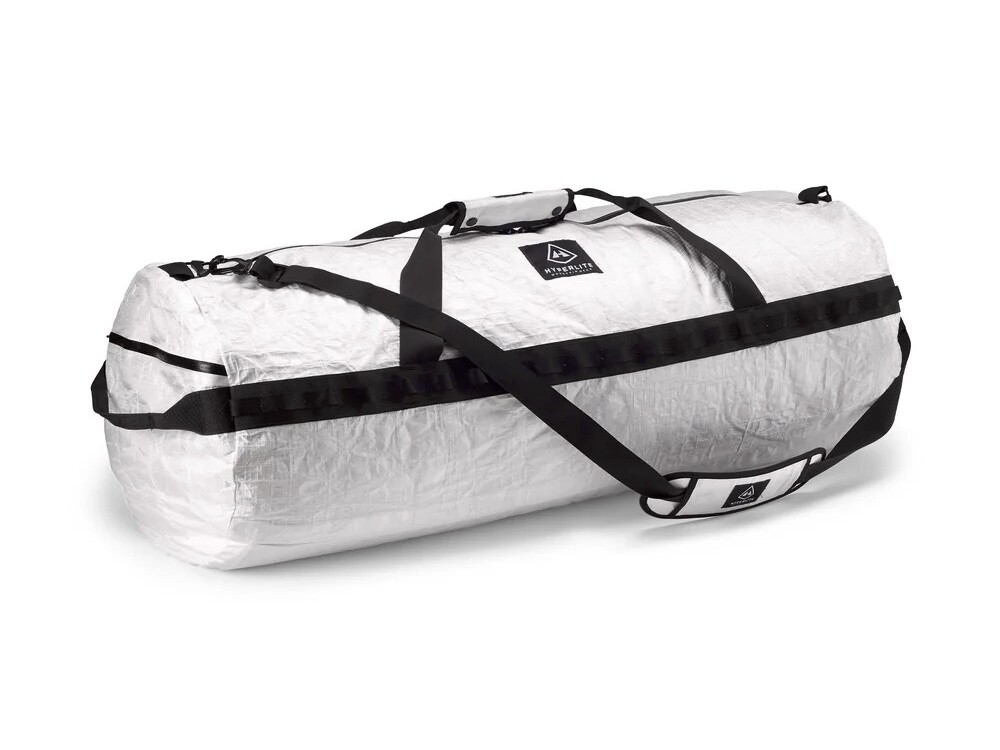
Expedition Down Pants. These will be worn on summit day and while relaxing at camp. A midweight synthetic pant like the Mountain Hardwear Compressor Pant is not warm enough (but it’s an excellent pant for other mountains). These must be fully zippered on both legs so you can put them on and take them off over your climbing boots and crampons without removing them. We recommend Feathered Friends Volant Down Pants.
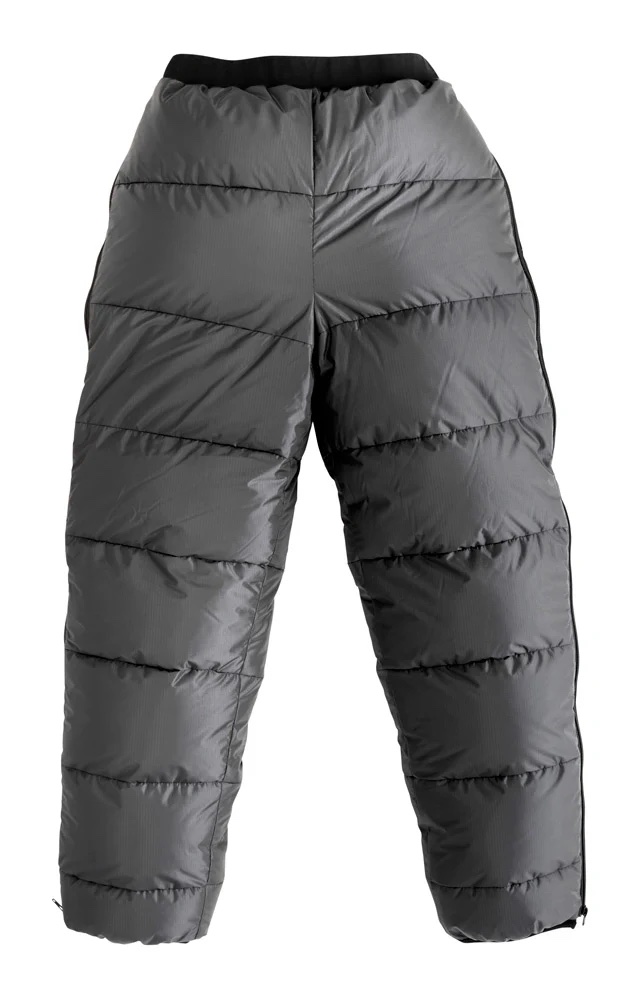
Balaclava. Don’t underestimate the cold, and don’t try to cut corners or “make do” with old systems/gear. Polar temperatures are serious, and removing your face covering or a glove can lead to a cold-related injury. Your balaclava must cover your entire face in conjunction with your glacier glasses or goggles to prevent frostbite. Also, don’t forget your neck gaiter! We recommend the Outdoor Research Gorilla Gore-Tex®Infinium™ Balaclava.
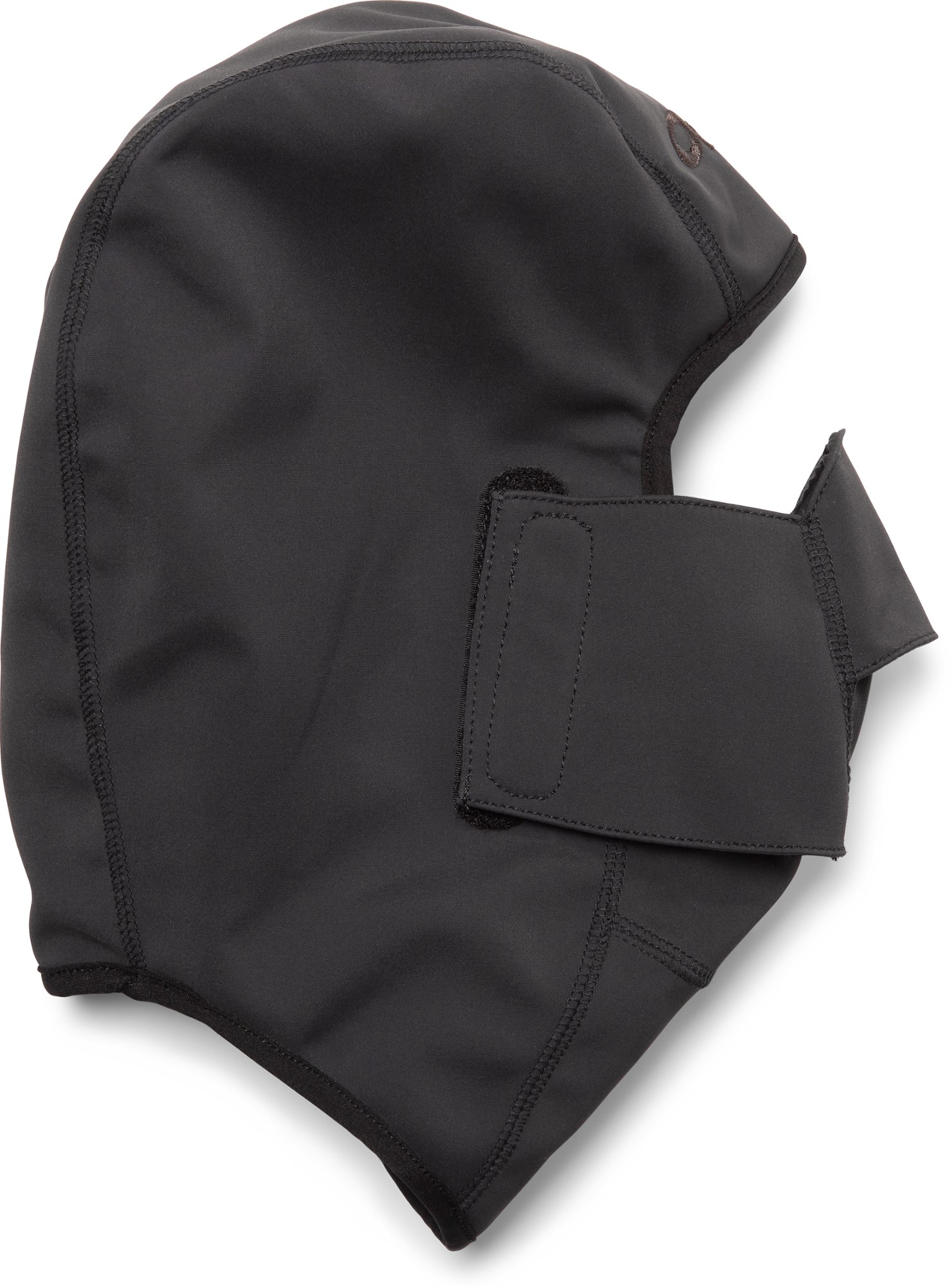
-40°F/C Down Sleeping Bag. You might be catching on—having the right gear on Vinson Massif is critical. A down bag is a must, and synthetic bags should be avoided. They are too bulky and heavy when rated below 0°F. When researching and testing sleeping bags, ensure that they are roomy enough to fit your water bottles inside so they don’t freeze. We recommend the Feathered Friends Snow Goose ES -40 Sleeping Bag.
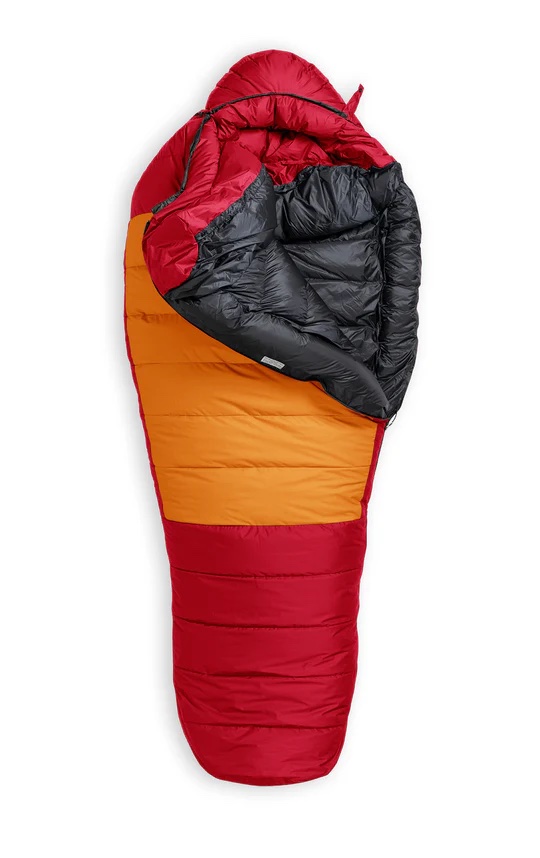
Hand Cream. Antarctica is incredibly cold and dry, which means hands tend to crack and split after repeated exposure to the elements. Using a hand cream or salve will keep your hands in good condition. Although we list this item as “optional” on our Gear List, we could emphasize more how helpful it will be once you are on the mountain. If you’re debating whether to bring it, bring it! You’ll be thankful. We recommend Super Salve.
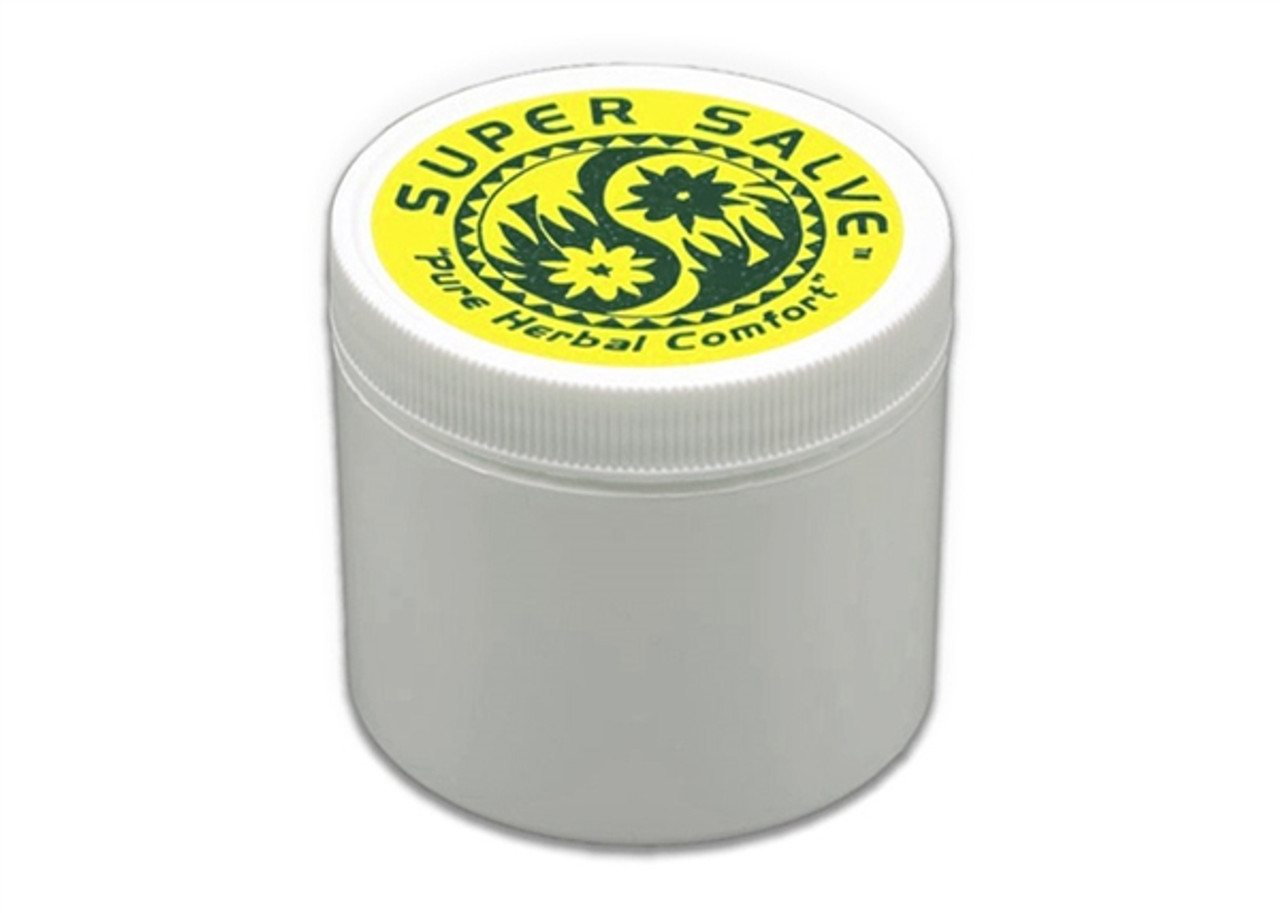
What other adventures can I do in Antarctica before or after my expedition?
You’ve made it all the way to Antarctica, which in itself is quite a feat! So why not add on an additional adventure to make the most of your time at the bottom of the Earth? We have several add-ons that you can take advantage of before or after your expedition to Vinson Massif. Below are a few of our favorite Antarctic adventures:
- South Pole Last Degree Ski. For those working towards the Explorer’s Grand Slam or looking to maximize your acclimatization and training, tack on a Last Degree Ski to the South Pole—another of the world’s greatest adventures! We offer Vinson Massif and Last Degree Ski team departure dates that dovetail into each other for a seamless transition from the South Pole to the mountain. For more information on our South Pole Last Degree Ski, click here.
- Climb Mount Sidley. Standing at an impressive 14,058 ft (4,285 m), Mount Sidley is one of the Volcanic Seven Summits, as it is the tallest dormant volcano in Antarctica, and it is a testament to the raw power and beauty of the Antarctic wilderness that surrounds it. Summiting Mount Sidley is more than just a climb—it’s an expedition of a lifetime, an experience that will leave an indelible mark on your soul forever. For more information on Mount Sidley, click here.
- South Pole Flight and (optional) Overnight Stay. Celebrate your summit on Vinson Massif with a once-in-a-lifetime flight to the South Pole, where all 360 lines of longitude meet. In just a few steps, you can walk around the world! To sweeten the adventure, add on an exclusive overnight stay in the world’s southernmost resort. It doesn’t get much more epic than sleeping and waking up at 90°S. For more information on our South Pole Flight and Overnight Stay, click here.
- Three Glacier Retreat. Luxury glamping in Antarctica? Yes, please. This exclusive retreat is tucked into the mighty Ellsworth Mountains at the head of three glaciers: the Schneider, the Schanz, and the Driscoll. When you step out of your double-walled haven tent, you’ll stand in awe of the majestic peaks that rise in all directions, offering unlimited opportunities for snowmobiling, hiking, climbing, and skiing. For more information on the Three Glacier Retreat, email us.
- Visit and Camp with Emperor Penguins. Get up close and personal with one of Antarctica’s most infamous creatures—the Emperor Penguin—at Gould Bay Camp along the remote coast of the Weddell Sea. Highlights include camping alongside thousands of penguins, catching glimpses of petrels and seals, and soaking up the surrounding landscape of ice cliffs, pressure ridges, and icebergs. For more information on this Emperor Penguin adventure, email us.
Final Thoughts on Vinson Massif
Vinson Massif is a place of extremes, from the sun and wind to the gear and logistics. When you pair all of these extreme elements together with the fact that Antarctica has no government, no permanent population, and is not ruled by any one country, it’s obvious why this is one of the greatest and most humbling expeditions for many mountaineers. In fact, fewer people have summited Vinson Massif than Mount Everest. If you want to join the ranks of climbers who have stood on the tallest mountain on the world’s coldest continent, join us for a life-changing expedition to Vinson Massif.
If you have any questions that remain unanswered, our team at Climbing the Seven Summits is here to help. Drop us an email at info@climbingthesevensummits.com, and our team can offer one-to-one support to make your climbing dreams a reality.
The Seven Summits Series: Vinson Massif
It’s time to turn our attention to the coldest and arguably the most remote of the Seven Summits—Mount Vinson! During this webinar, CTSS Owner Mike Hamill and Senior Gudie Tomi Ceppi talk about gear, weather, training, travel, and costs to prepare you to climb Antarctica’s highest peak.
This expert-led webinar will not only give you a primer on where Vinson Massif is and why it’s so hard to reach, but it will also talk about all the logistics to help you prepare for your climb. From gear and budget to training and time off, Mike and Tomi will make sure you leave with an understanding of what it takes to climb and succeed in a place of extremes.